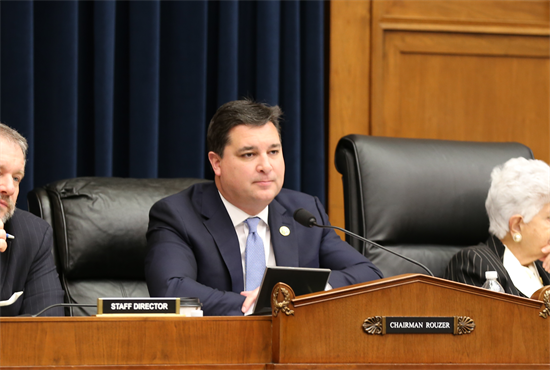Press Releases
Rouzer, Graves Introduce Bill to Streamline Disaster Recovery Assistance
Washington,
March 14, 2023
WASHINGTON, DC - Today, Congressman David Rouzer (NC-07) and Congressman Garret Graves (LA-06) introduced the Natural Disaster Recovery Program Act, a bill to cut unnecessary red tape and give local governments the flexibility to immediately expense activities related to disaster relief after a federally declared disaster. States will be awarded half of the total grant funds immediately, allowing recovery dollars to move as quickly as possible. “Under the current Community Development Block Grant – Disaster Recovery (CDBG-DR) program, disaster survivors may wait years for recovery dollars,” said Rep. Rouzer. “This is largely due to the overly bureaucratic process governing the program at the federal level. The result is long delays, which means long gaps between the end of short-term disaster recovery programs from FEMA and SBA and the start of long-term recovery programs. This time gap leaves survivors in the lurch, prolonging their suffering and hampering the full recovery of individuals, families and their communities as they wait months or years for disaster assistance. It is time to scrap the CDBG-DR program and replace it with a simple block grant allowing states and localities to properly address the unique needs of disaster survivors.” “Everyone in Louisiana knows that someone a thousand miles away in Washington, DC is too far removed to be directing disaster recovery. Our legislation empowers the recovery process at the local level rather than waiting on bureaucrats and contractors who get paid by the page and minute to shift paperwork,” said Rep. Graves. “The federal government continues to repeat the same mistake when it comes to natural disasters: a failure to respond quickly – all because of continued red tape and bureaucratic log jams. This bill fixes that. Folks shouldn’t have to wait years for recovery dollars while trying to get their homes, businesses, churches, or other community cornerstones back up and running. Our communities should come back stronger and much more quickly as a result of this legislation." The Natural Disaster Recovery Program Act will create an unmet needs program – under a new section of the Stafford Act – at the Federal Emergency Management Agency (FEMA) rather than at the U.S. Department of Housing and Urban Development (HUD). The program will authorize a simple block grant program for disaster assistance funds for states impacted by federally declared disasters. States would therefore be empowered with the decision-making capability to decide where to spend disaster dollars and the ability to create a program structure to get the money out the door faster – taking power away from HUD all while maintaining oversight of taxpayer dollars. In the critical months after a devastating natural disaster, the needs of survivors should be the highest priority. The more efficiently these needs are met, the more quickly communities can fully recover. The Natural Disaster Recovery Program Act:
|


